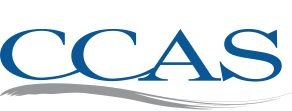Statement on Liberal Education
Download PDF of Statement on Liberal Education
CCAS Statement on Liberal Education
Adopted by the CCAS Board of Directors, November 14, 2009
Liberal education is education “fit for a free person.” The term “liberal” in “liberal education” is derived from the Latin word “liber,” free. Liberal studies can, in fact, lead to freedom—freedom from the enslaving constraints of ignorance, prejudice, apathy, and narrow specialization. Indeed, a successful liberal education, by which we mean a broad, general education in the humanities, fine arts, and sciences, gives an educated person a dedication to critical inquiry, sensitivity to cultural and social contexts, independence of thought and reasoning, and respect for the breadth of human endeavor.
The Council of Colleges of Arts and Sciences believes that, in today’s global society, a liberal education is more important for our citizens than ever. Although professionally-oriented degree programs certainly have an important place in American higher education, we believe that majoring in the traditional liberal arts and sciences prepares students especially well for sustainable careers in the rapidly changing knowledge economy. The jobs of today will not necessarily be those of tomorrow. Broad training in critical reasoning, oral and written communication, and quantitative literacy gives students the flexible skills needed to adapt to and even create tomorrow’s jobs.
Just as we strive to equip our students with broad, transferable skills, Colleges of Arts and Sciences are also sensitive to the immediate career needs of our new graduates. Thus, we strive to make our students aware of the various career possibilities available to them and to prepare them for a difficult job market through increased emphasis on internships and more intensive career counseling.
The value of a liberal education, however, must not be measured solely by means of its economic impact. By nurturing the habits of critical and integrative thinking, liberal education prepares students to be good citizens of tomorrow’s democracy. It prepares them, for example, to evaluate thoughtfully not only heated political rhetoric but also complex moral and ethical questions arising from new political developments, environmental changes, and discoveries in science and medicine. It also introduces them to multiple cultural perspectives, perspectives necessary for successful global citizenship.
While we are developing critical intellectual skills, Colleges of Arts and Sciences emphasize the application of those skills for the common good. We strive to direct our students ever more strongly to the service of their fellow humans and to the vulnerable societies in which they live. Citizens with these kinds of skills and values are essential to the future health of our democracy.
Finally, we reaffirm our belief that “the good life” is built not only on a strong foundation of economic security but also on well-developed sensitivities to the best of human expression in music, visual arts, drama, traditional cultural artifacts, or literature. Liberal education, which trains students to recognize art’s subtle complexities, makes possible a deeper and more nuanced appreciation of the arts. While an educated appreciation of the fine arts does not guarantee moral probity or a dedication to the welfare of humanity, it does have the ability to raise the human spirit and to unlock the finest expressions of our shared human experience.





No comments have been entered for this page.
Add a Comment - www.ccas.net